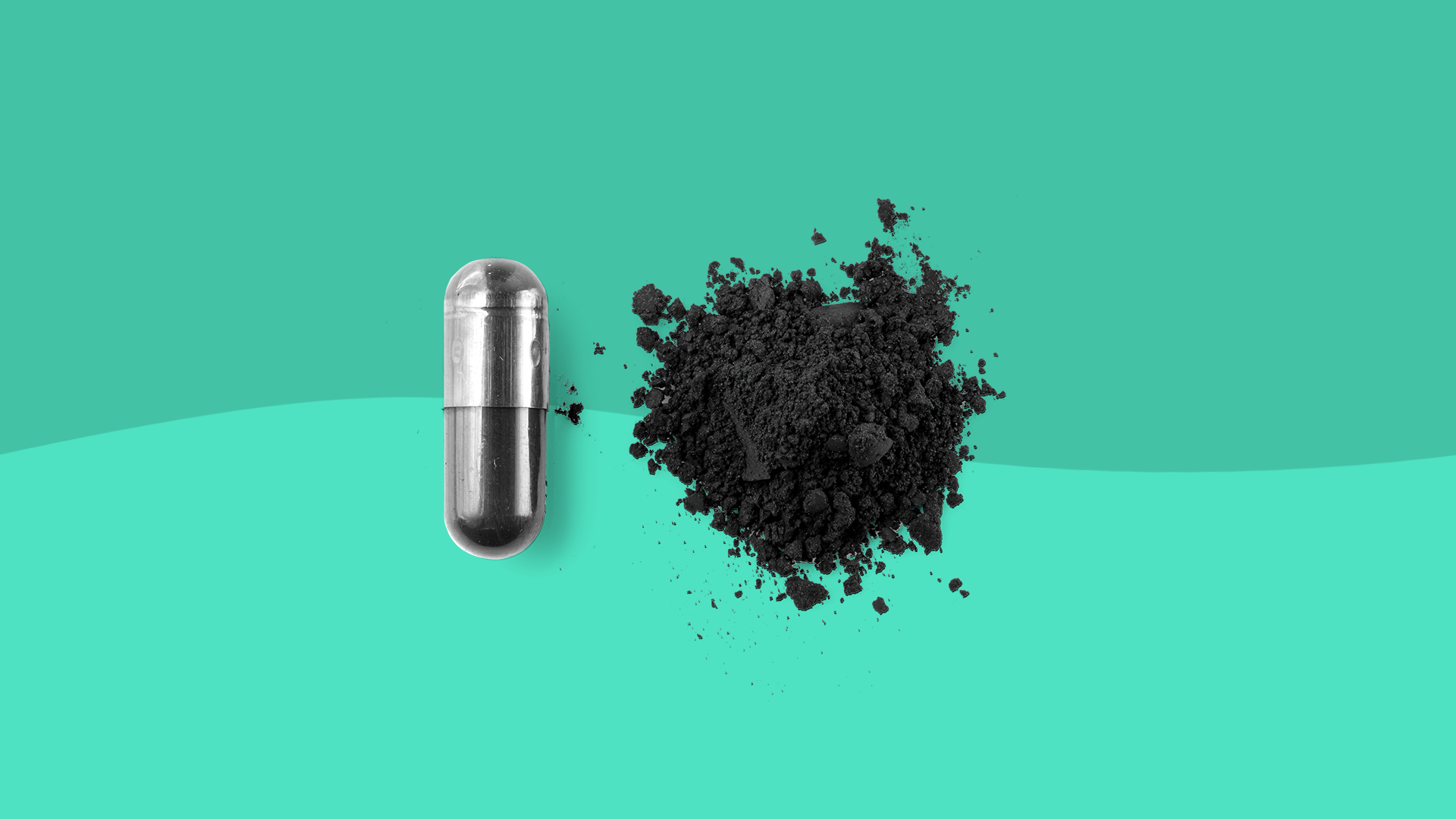By SingleCare Team | Feb. 27, 2020
Medically reviewed by Anis Rehman, MD
It seems like activated charcoal is everywhere now. You’ll find it in everything from toothpaste and beauty products to beverages and supplements. It’s even in ice cream. People are using activated charcoal in their daily lives more frequently with the hope that they’ll benefit from its powerful detoxifying qualities, but should you really be eating it? This guide will shed light on the risks and health benefits of activated charcoal, and you’ll learn how to use it safely.
What is activated charcoal?
Activated charcoal (Activated charcoal coupons | Activated charcoal details) is a byproduct of burning materials such as wood, coconut shells, or peat at high temperatures. When carbon sources, like wood, burn, it creates small particles that have a large surface area. The superfine activated charcoal that results from this process can bind to and adsorb heavy metals, chemicals, and other toxins because of its large surface area. You can use activated charcoal topically on a porous surface—such as the skin—or internally through the digestive system.
What is activated charcoal used for?
Humans have been using activated charcoal for hundreds of years because of its ability to detoxify the body. In addition to general detoxification, doctors have used activated charcoal to treat conditions, like drug overdose and poisoning, and alleviate symptoms, like diarrhea. It’s no surprise that activated charcoal is making a powerful comeback as people—and companies—find new ways to use and market it. Some “new” activated charcoal benefits include anti-aging through detoxification of adrenal glands, acne, water filtration, and teeth whitening. It’s also a remedy for bug bites and hangovers.
Does activated charcoal really work?
Many people question whether activated charcoal really works. Has it become so popular because of good marketing or because of its efficacy? There’s no doubting the power of a good marketing campaign, but many studies have shown that activated charcoal helps treat certain health conditions. Here are some medically tested activated charcoal benefits.
General detoxification
Activated charcoal works through the digestive tract by trapping toxins in the gut and preventing them from being absorbed. Activated charcoal stays in the body until it’s passed in stools along with the toxins—including bacteria and drugs—it latched on to.
Hospital and emergency room staff sometimes use activated charcoal to counteract drug overdoses and poisonings. If they’re able to treat the patient before the toxic substance enters the bloodstream, activated charcoal can be effective. However, many people who are hospitalized from ingesting a toxin will absorb enough of the substance before being admitted.
Antidiarrheal
Activated charcoal can also treat diarrhea by preventing the absorption of bacteria in the body. Some people even claim that activated charcoal can help with weight loss, though it isn’t and shouldn’t be used as a weight-loss pill.
Activated charcoal has even proven effective at reducing intestinal gas, bloating, and abdominal cramps. In one particular study, activated charcoal won against a placebo and effectively reduced symptoms of abdominal cramping and flatulence.










